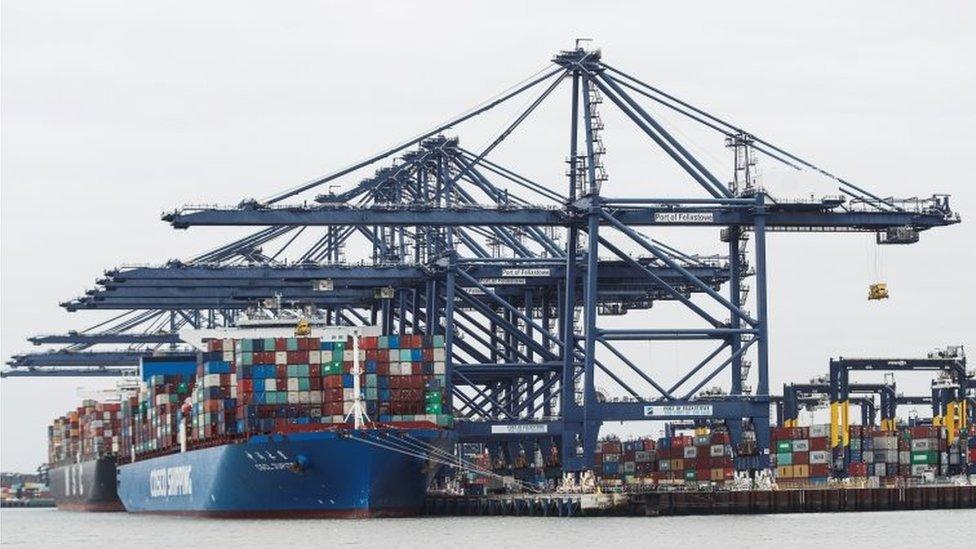Ferry firms handed ВЈ77.6m post-Brexit contracts
- Published

Four ferry firms have landed government contracts worth a total of ВЈ77.6m to provide post-Brexit freight capacity.
Brittany Ferries, DFDS, P&O Ferries and Stena Line will have the job of ensuring medical supplies and other vital goods continue to get to the UK.
The government says it wants a smooth flow of freight "whatever the outcome of negotiations with the EU",
The contracts will be in place for up to six months after the Brexit transition period ends on 31 December.
Freight operators have warned about potential delays to cross-Channel trade at major ports such as Dover and Folkestone from 1 January.
Court settlement
The government says it "continues to work with key local stakeholders and industry to prepare for the end of the transition period".
The additional capacity will be on quieter ferry routes between mainland Europe and UK ports in Felixstowe, Harwich, Hull, Newhaven, Poole, Portsmouth, Teesport and Tilbury.
In 2018, the government awarded contracts worth a total of ВЈ87m to ferry companies for similar contracts, which were not needed in the end because Brexit was postponed.
The then Transport Secretary Chris Grayling faced calls to quit after it emerged one of the contracts, worth ВЈ13.8m, had gone to Seaborne Freight, a company which had never run a ferry service and had no trading history. Seaborne Freight recently went bust.
No money was paid to Seaborne Freight - but the Department for Transport paid Eurotunnel ВЈ33m in an out-of-court settlement after the firm claimed it had been unfairly overlooked for the work and that the contracts had been awarded in a "secretive" way.
The government said the latest ferry contracts have been awarded from a shortlist of "experienced freight operators" entering bids.
'Unprecedented disruption'
Chris Grayling's successor, Grant Shapps, said: "As the transition period comes to an end, we are putting the necessary measures in place to safeguard the smooth and successful flow of freight.
"Securing these contracts ensures that irrespective of the outcome of the negotiations, life-saving medical supplies and other critical goods can continue to enter the UK from the moment we leave the EU."
But Best for Britain, which campaigned against Brexit, questioned the wisdom of relying on ferry operators to secure essential medical supplies.
The campaign group's chief executive Naomi Smith said: "Supply chains are already experiencing unprecedented levels of disruption due to Covid and a no-deal Brexit could create huge new logistical problems for medicine suppliers and those relying on them, particularly given how late these arrangements have been made.
"With time and money now in very short supply, the government would do well to channel its energy into securing an agreement with the EU to prevent the possibility of shortages in the new year."